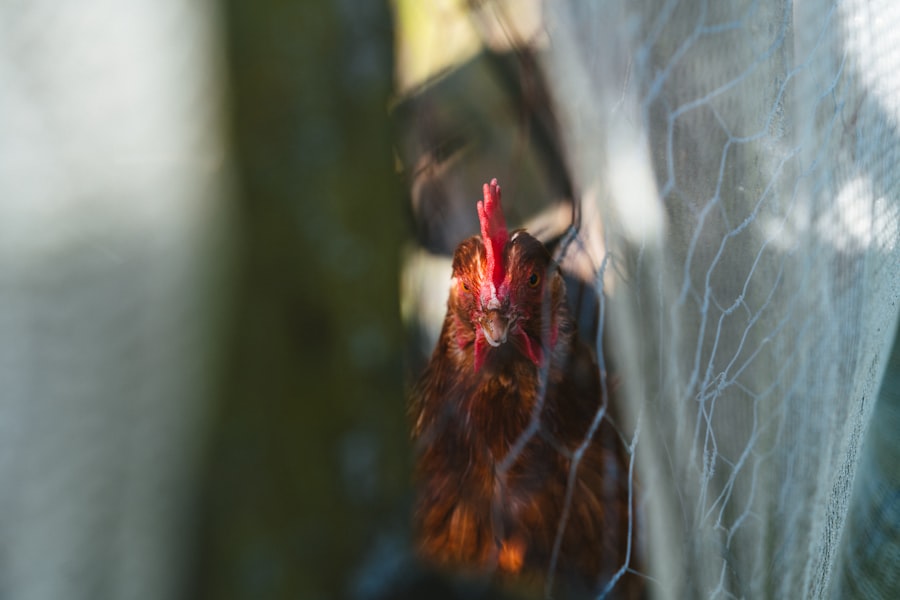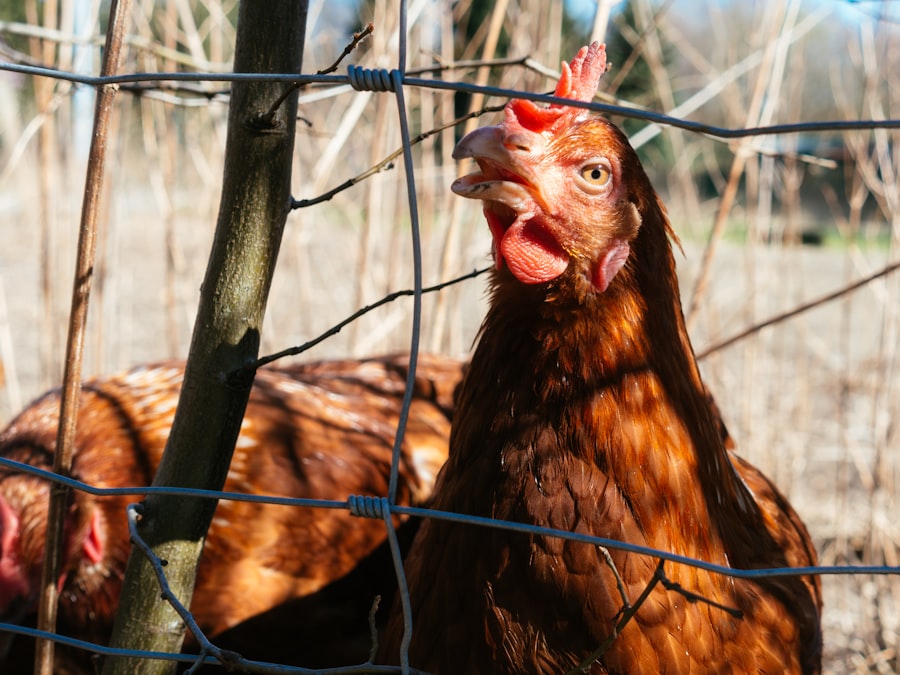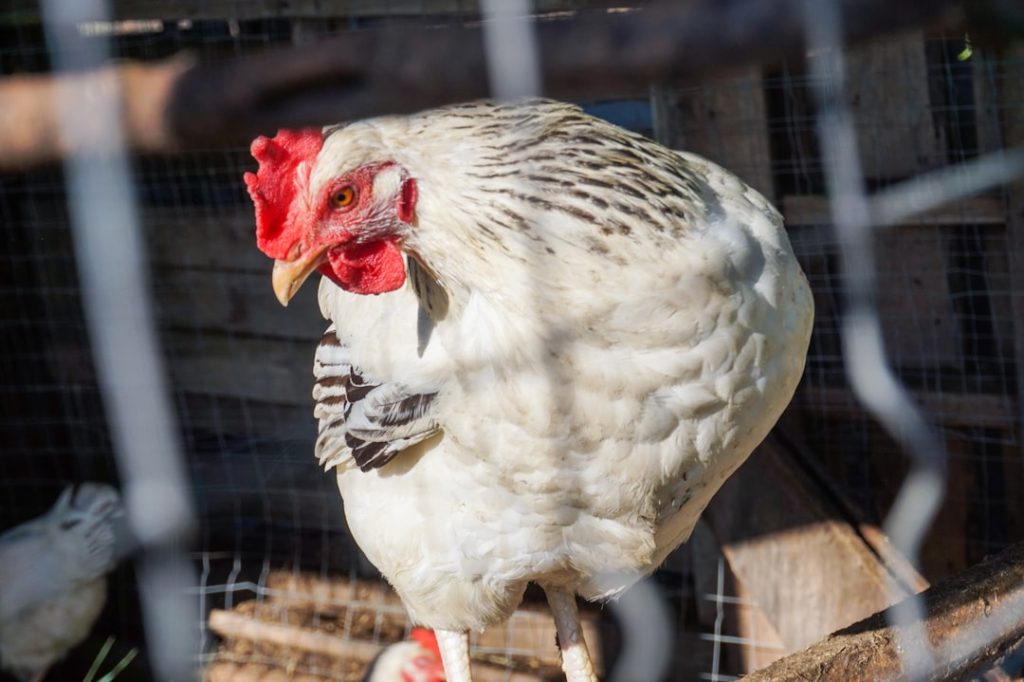Chickens are known for their inquisitive nature and opportunistic feeding habits, which can sometimes lead them to consume plants that are harmful to their health, including hostas. Hostas are commonly used ornamental plants in gardens and landscaping, but they can be toxic to chickens if consumed in large amounts. Several factors contribute to chickens eating hostas:
1.
Visual attraction: The lush, green foliage of hostas may be mistaken for edible greens by chickens. 2. Texture appeal: Chickens may be drawn to the tender shoots and leaves of hostas, particularly if their diet lacks variety.
3. Boredom: Chickens may peck at hostas out of curiosity or as a result of insufficient environmental stimulation. Understanding these behaviors is essential for developing effective strategies to protect hostas and maintain chicken health.
Chickens are instinctive foragers that naturally sample various plants in their surroundings. While this behavior is difficult to eliminate entirely, there are several approaches to mitigate the issue of chickens eating hostas:
1. Creating physical barriers
2.
Providing alternative food sources
3. Using natural repellents
4. Adjusting the chickens’ diet
By implementing these measures, it is possible to address the problem of chickens consuming hostas and create a balanced environment that accommodates both plants and poultry.
Table of Contents
- 1 Creating Physical Barriers to Protect Hostas
- 2 Distracting Chickens with Alternative Food Sources
- 3 Using Natural Repellents to Keep Chickens Away from Hostas
- 4 Training Chickens to Avoid Hostas
- 5 Adjusting the Chicken’s Diet to Reduce Hosta Consumption
- 6 Seeking Professional Help if the Problem Persists
- 7 FAQs
Key Takeaways
- Chickens eat hostas because they are attracted to the tender leaves and shoots as a source of food and nutrients.
- Creating physical barriers such as fences, netting, or cloches can effectively protect hostas from being eaten by chickens.
- Distracting chickens with alternative food sources like scratch grains, mealworms, or kitchen scraps can divert their attention away from hostas.
- Natural repellents such as garlic, vinegar, or hot pepper spray can be used to keep chickens away from hostas.
- Training chickens to avoid hostas can be achieved through consistent reinforcement and positive/negative associations.
- Adjusting the chicken’s diet by providing a balanced and nutritious feed can reduce their inclination to consume hostas.
- If the problem persists, seeking professional help from a veterinarian or animal behaviorist may be necessary to address the issue.
Creating Physical Barriers to Protect Hostas
Creating Physical Barriers
One effective way to prevent chickens from eating hostas is to create physical barriers that will deter them from accessing the plants. This can be achieved by using fencing or netting to enclose the area where the hostas are planted. Chicken wire or hardware cloth can be used to create a protective barrier around individual plants or entire garden beds.
Ensuring the Barrier is Effective
It’s important to ensure that the barrier is tall enough to prevent chickens from reaching over it or flying over it. Additionally, the barrier should be securely anchored to the ground to prevent chickens from digging underneath it. Another option is to use cloches or plant cages to cover individual hosta plants and protect them from being eaten by chickens.
Using Natural Deterrents
In addition to physical barriers, you can also consider using natural deterrents such as prickly or thorny plants around the perimeter of the hosta bed. This can create a natural barrier that will discourage chickens from venturing into the area. Planting herbs such as rosemary, sage, or lavender can also help repel chickens due to their strong scents.
By creating physical barriers and using natural deterrents, you can effectively protect your hostas from being eaten by chickens and maintain a beautiful and healthy garden.
Distracting Chickens with Alternative Food Sources

Another effective strategy for preventing chickens from eating hostas is to provide them with alternative food sources that will satisfy their natural foraging instincts. By offering a diverse range of greens, fruits, and vegetables, you can help divert their attention away from the hostas and provide them with nutritious and safe options to eat. Consider planting a separate area of your garden with chicken-friendly plants such as clover, alfalfa, or sunflowers that chickens can freely forage in.
You can also scatter scratch grains or mealworms in designated areas to encourage chickens to peck and scratch in those locations instead of near the hostas. Additionally, providing access to a chicken feeder filled with a balanced feed can help ensure that your chickens are getting all the nutrients they need and reduce their inclination to seek out other plants to eat. In addition to providing alternative food sources in the garden, you can also consider offering treats such as chopped fruits, vegetables, or mealworms as a distraction for your chickens.
By regularly providing these treats in a designated feeding area, you can help redirect their attention away from the hostas and reinforce positive foraging behaviors. It’s important to ensure that the treats you offer are safe and healthy for chickens to consume, and that they are provided in moderation as part of a balanced diet. By distracting chickens with alternative food sources, you can help prevent them from eating hostas and create a more enriching environment for your flock.
Using Natural Repellents to Keep Chickens Away from Hostas
Natural repellents can be an effective way to deter chickens from eating hostas and protect your plants from harm. There are several natural substances that have strong scents or tastes that chickens find unpleasant and will avoid. One option is to use strong-smelling herbs such as mint, oregano, or garlic as a natural repellent around the perimeter of the hosta bed.
These herbs can be planted directly in the ground or placed in pots and strategically positioned to create a barrier that will discourage chickens from approaching the area. Additionally, you can create a homemade repellent spray using ingredients such as hot peppers, garlic, or vinegar that can be applied directly to the leaves of the hostas. The strong scent and taste of these natural repellents will deter chickens from eating the plants and help protect them from harm.
Another natural repellent option is to use predator scent or urine around the perimeter of the hosta bed to create a deterrent for chickens. Predator scent such as fox or coyote urine can be purchased in liquid form and applied to the ground or surrounding plants to create a natural barrier that will discourage chickens from entering the area. Additionally, you can consider using motion-activated devices such as sprinklers or noise makers that will startle chickens if they approach the hostas, further reinforcing their aversion to the area.
By using natural repellents, you can effectively keep chickens away from hostas and protect your plants from being eaten.
Training Chickens to Avoid Hostas
Training your chickens to avoid eating hostas can be a challenging but effective long-term solution to the problem. Chickens are intelligent animals and can learn through positive reinforcement and consistent training methods. One approach is to use visual cues such as brightly colored flags or ribbons placed around the perimeter of the hosta bed to create a visual barrier that will signal to the chickens that they should not enter the area.
You can also use verbal commands such as “no” or “leave it” when chickens approach the hostas, followed by a reward such as a treat when they comply with the command. By consistently reinforcing these cues and rewards, you can help train your chickens to associate the hosta bed with a negative consequence and choose alternative foraging areas instead. Another training method is to use aversion therapy by applying a bitter-tasting substance such as hot sauce or bitter apple spray directly onto the leaves of the hostas.
When chickens attempt to eat the plants, they will experience an unpleasant taste that will deter them from continuing to consume them. Over time, this aversion therapy can help train chickens to avoid eating hostas altogether. It’s important to ensure that any substances used for aversion therapy are safe for chickens and applied in moderation to prevent any negative effects on their health.
By training chickens to avoid hostas through visual cues, verbal commands, and aversion therapy, you can effectively address the problem and create a more harmonious environment for both your plants and poultry.
Adjusting the Chicken’s Diet to Reduce Hosta Consumption

Addressing Dietary Deficiencies
One potential reason why chickens may be inclined to eat hostas is due to deficiencies in their diet or lack of variety in their food options. By adjusting the chicken’s diet and providing them with a balanced and nutritious feed, you can help reduce their inclination to seek out other plants such as hostas. Ensure that your chickens have access to a high-quality layer feed that contains essential nutrients such as protein, vitamins, and minerals to support their overall health and well-being.
Supplementing with Fresh Greens
Additionally, consider supplementing their diet with fresh greens such as lettuce, kale, or spinach that will provide them with additional nutrients and help satisfy their natural foraging instincts.
Creating an Enriching Environment
In addition to adjusting their diet, you can also consider providing access to a designated foraging area where chickens can freely scratch and peck for insects, seeds, and other natural food sources. By creating an enriching environment with plenty of opportunities for natural foraging behavior, you can help reduce their interest in consuming plants such as hostas.
Ensuring Safety in Foraging Areas
It’s important to ensure that any foraging areas are safe and free from potential hazards such as toxic plants or sharp objects that could harm your chickens. By adjusting the chicken’s diet and providing enriching foraging opportunities, you can help reduce their inclination to eat hostas and create a healthier and more balanced diet for your flock.
Seeking Professional Help if the Problem Persists
If despite your best efforts, the problem of chickens eating hostas persists, it may be necessary to seek professional help from a veterinarian or animal behaviorist who specializes in poultry care. A veterinarian can conduct a thorough health assessment of your flock to rule out any underlying medical conditions that may be contributing to their behavior. They can also provide guidance on dietary adjustments or supplements that may help address any nutritional deficiencies that could be driving their interest in consuming plants such as hostas.
An animal behaviorist can provide expert advice on training methods and behavior modification techniques that are tailored specifically to poultry. They can assess your flock’s behavior and environment and provide personalized recommendations on how to effectively address the issue of chickens eating hostas. Additionally, they can offer guidance on creating an enriching environment for your flock that will help satisfy their natural instincts and reduce their inclination to seek out harmful plants.
In some cases, seeking professional help may also involve consulting with an experienced poultry farmer or breeder who has extensive knowledge of chicken behavior and care. They can offer practical insights and recommendations based on their own experiences working with poultry and provide valuable guidance on how to effectively manage this issue. In conclusion, addressing the problem of chickens eating hostas requires a multifaceted approach that takes into consideration their natural behaviors, dietary needs, and environmental enrichment.
By understanding the reasons behind this behavior and implementing strategies such as creating physical barriers, providing alternative food sources, using natural repellents, training methods, dietary adjustments, and seeking professional help if needed, you can effectively prevent chickens from eating hostas and create a harmonious environment for both your plants and poultry.
If you’re looking for ways to keep chickens from eating your hostas, you may also be interested in learning about what vegetables quails eat. Check out this article on Poultry Wizard to discover how to keep your quails well-fed and happy. And while you’re at it, you can also explore other helpful tips and resources for keeping chickens on Poultry Wizard, including advice on building a chicken coop in Chester, SC.
FAQs
What are hostas?
Hostas are a popular perennial plant known for their lush foliage and attractive flowers. They are commonly used as ornamental plants in gardens and landscaping.
Why do chickens eat hostas?
Chickens are natural foragers and may eat hostas because they are attracted to the tender leaves and shoots of the plant. Additionally, hostas contain certain nutrients that chickens find appealing.
How can I keep chickens from eating my hostas?
There are several methods to deter chickens from eating hostas, including:
– Using physical barriers such as fencing or netting to protect the plants
– Applying natural repellents such as garlic or hot pepper spray
– Providing alternative foraging areas or supplemental feed to distract the chickens
Are there any plants that are safe to grow around chickens?
Yes, there are many plants that are safe to grow around chickens, including herbs like mint, oregano, and thyme, as well as vegetables like kale, lettuce, and squash. It’s important to research and choose plants that are non-toxic to chickens.
Can chickens be trained not to eat certain plants?
Chickens can be trained to some extent through positive reinforcement and consistent redirection. However, it’s important to understand that chickens are natural foragers and may still be drawn to certain plants despite training efforts.
Meet Walter, the feathered-friend fanatic of Florida! Nestled in the sunshine state, Walter struts through life with his feathered companions, clucking his way to happiness. With a coop that’s fancier than a five-star hotel, he’s the Don Juan of the chicken world. When he’s not teaching his hens to do the cha-cha, you’ll find him in a heated debate with his prized rooster, Sir Clucks-a-Lot. Walter’s poultry passion is no yolk; he’s the sunny-side-up guy you never knew you needed in your flock of friends!







